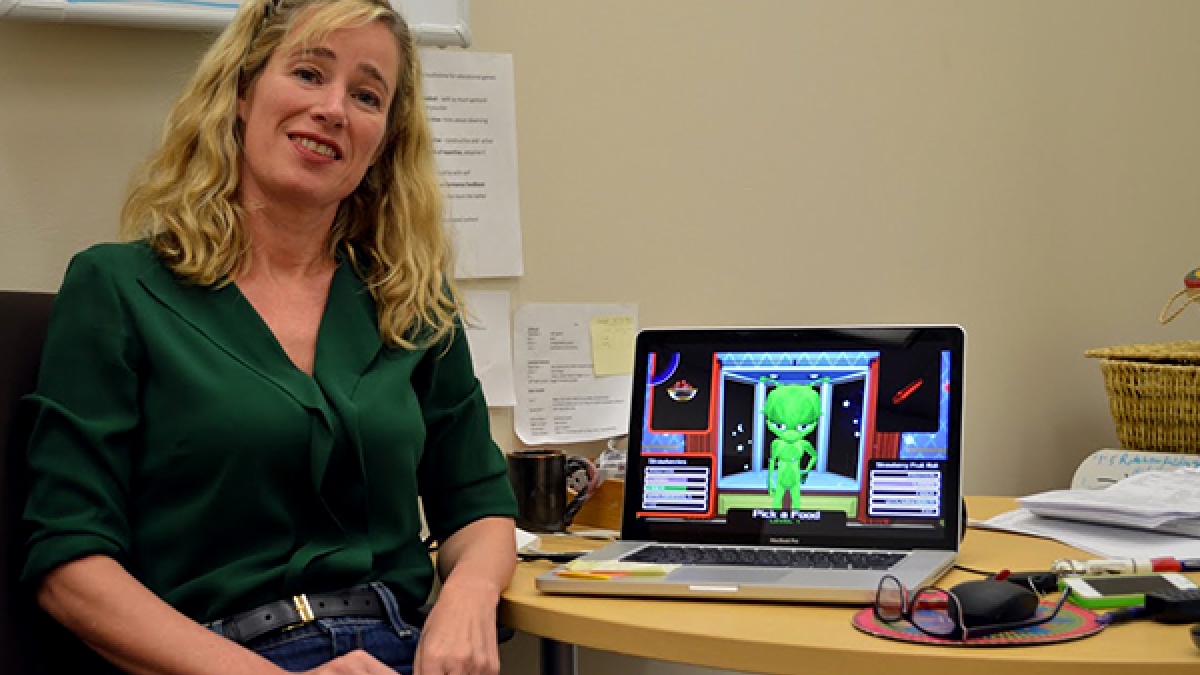When it comes to learning, does screen size matter?

Do students grasp science concepts more deeply when they experience them in an immersive, giant-screen format?
Mina Johnson-Glenberg, director of the Embodied Games for Learning lab at ASU, will help examine that question as co-principal investigator on a project funded by a $2.7 million National Science Foundation AISL grant.
“Amazon Adventure” is a giant-screen IMAX film currently being produced that will tell the story of the discovery of biological mimicry, the critical proof for natural selection and in turn, evolution. It details the story of Henry Bates and his travels through the Amazon rainforest more than 150 years ago.
As her part of the project, Johnson-Glenberg will create a novel tablet-based video game that will assess the knowledge gains, interest and science identity of audience members before and after viewing the film, and in a later follow-up. She will gauge whether watching the film in different formats – small screen versus 2-D and 3-D giant screen and planetarium domed formats – leads to different knowledge gains.
For more than two decades, the National Science Foundation has been investing in the development and evaluation of giant screen films in science centers and museums, which have been highly successful in terms of audiences reached and impact on learning. Less well understood is how such “immersive” viewing may affect learners in different ways.
The film and related outreach via science centers, social media and the Web are expected to reach large public audiences. Workshops and Web resources will assist science instructors nationally.
A strategy for reaching underrepresented audiences through science museums and partnerships is also part of the effort. Johnson-Glenberg has been a leader in creating games that attract girls to STEM topics and mentoring women in technology.
Her lab’s assessment game will also be produced as a stand-alone game, available in museums and downloadable from her ASU spinout company Embodied Games. Johnson-Glenberg is seeking a subject matter expert on natural selection to work with her on the project.
Principal investigator on the grant is Diane Carlson, vice president of guest services and theater operations at the Pacific Science Center in Seattle. Mary Nucci, research assistant professor of human ecology at Rutgers, is a second co-principal investigator.
For more information on the Embodied Games for Learning lab at ASU, go to egl.lsi.asu.edu. Many of the learning games produced by Johnson-Glenberg are available at embodied-games.com.